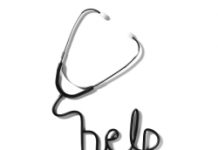 After the excesses of Christmas, millions of people resolve to live a more healthy lifestyle in the New Year. As well as your physical wellbeing, this is also a good time to look at the health of your finances.
After the excesses of Christmas, millions of people resolve to live a more healthy lifestyle in the New Year. As well as your physical wellbeing, this is also a good time to look at the health of your finances.
Reduce debts
The key to any New Year’s resolution is starting well and there is little point in having savings if you are in debt – the interest you earn on your savings may be less than you pay on your debts.
Start the New Year by making a list of everything you owe including unpaid bills and other loans. Then set about paying off the most expensive first, which will usually be store and credit cards.
If you are having problems clearing your credit card balance, consider transferring to a new card with a 0% introductory rate. It is no longer so attractive to keep switching your balance around as many providers now charge transfer fees when you move, but you will normally get up to 12 months at 0%.
Review your bank account
At this stage of your career, you may still be using the bank account you set up as a student, so you could be missing out on additional services that are available from your bank.
Also, with interest rates so low, you should check what rate you’re receiving on your current and savings accounts. If it’s low or almost non-existent, consider talking to your bank to see if there is a better account they can offer or check the best buy tables in the weekend press to see if there are better deals available.
Set up an Individual Savings Account
ISAs allow you save cash or invest in shares without having to pay tax on any gains you make. You only have until 5 April to use up your 2012/13 ISA allowance, which is £11,280 for a stocks and shares ISA or a maximum of £5,640 in a cash ISA, with the rest in shares. The 2013/14 total ISA allowance will be £11,520.
If you are saving for a short term goal and would like easy access to your cash, then a cash ISA may be the best option.
Protect your income
If you are off ill for a lengthy period it may impact on your income, so ensure you have plans in place to protect your finances.
If you are employed by the NHS and fall ill, you will be entitled to NHS sick pay, but if you are still unable to work when that runs out, then you may have to draw upon your own savings or, if eligible, rely on state benefits.
However, an income protection policy will provide you with a regular tax-free income based on your full earnings, typically up to 50% of your pre-incapacity level. Most policies pay out until you are well enough to return to work, are no longer suffering from a loss of earnings (such as if you start receiving your pension), you reach the maximum age for your policy or you die.
Consider your mortgage
If you have a mortgage, because of the current low interest rates, you may be paying less for it now than in previous years. However, you may still be paying too much and there may be deals around that could save you money. You might find an offset mortgage is more appropriate for you, especially if you have money sitting in a low interest savings account. Remember to find out whether you will incur any penalties for switching mortgages.
Shop around for general insurance
The time of year you buy insurance will generally depend on your renewal dates. However you can still do some research now and make a note of where the best deals are for cheaper motor and household insurance. If your time is limited, you might want to find an insurer that offers a more flexible personalised service.
Check your utility bills
Many people stay with the same energy company year-on-year not realising they could be saving money by changing supplier. Why not spend a bit of time checking whether you are getting the best deals.
Conclusion
It is never too early – either in your career or during the year – to start thinking about your finances. Talk to a financial adviser with expertise of the medical profession to ensure you are on the right track.
The above information does not constitute financial advice. If you would like more information or need specialist financial advice, call Wesleyan Medical Sickness on 0800 358 6060 or visit the website at www.wesleyan.co.uk/doctors.


































